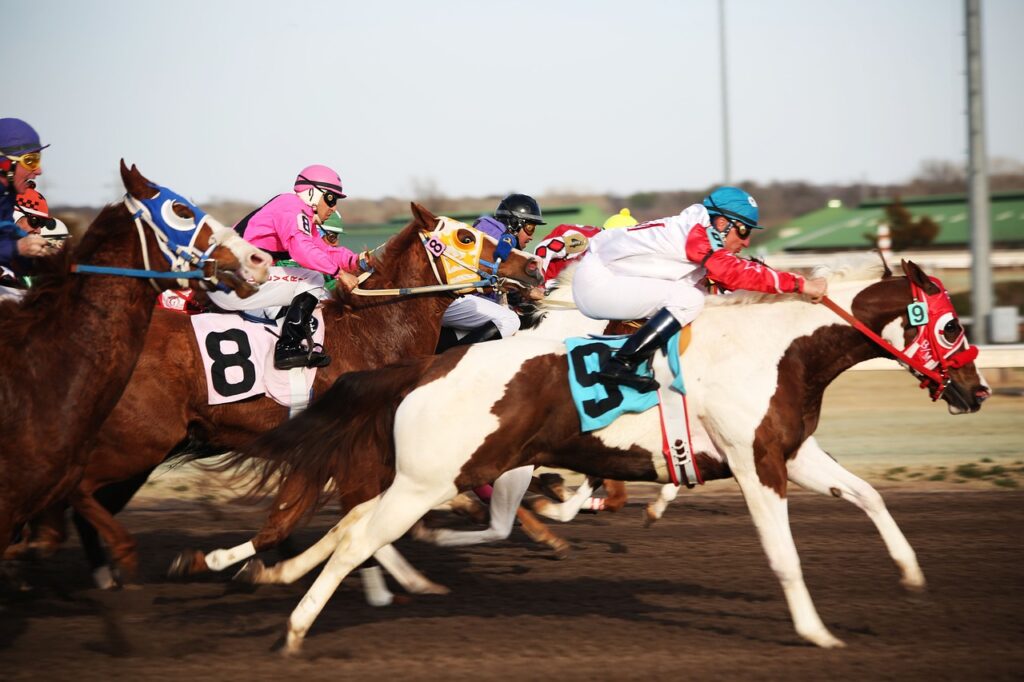The Great Debate: Horse or Jockey—What Holds More Weight in Betting?

When it comes to betting on horse racing, one of the most commonly debated questions is whether the skill of the jockey or the ability of the horse is more crucial in determining the outcome of a race. Both elements play significant roles in shaping the results, but opinions differ widely on which factor should be given more weight.
The Case for the Jockey
Whether you’re using Gamstop sites or taking advantage of the flexibility, rewards, and bonuses offered by betting sites not on Gamstop, most punters tend to focus on the horse when making their bets. After all, it is horse racing. However, the jockey is just as crucial to the outcome, and here’s why:
Communication and Understanding
An often underestimated aspect of the jockey’s role is the rapport they develop with their horse. A jockey who understands their mount’s behavior, temperament, and abilities can bring out the best in a horse. For instance, a skilled jockey may know how to calm a nervous horse at the starting gate or motivate a horse to give a stronger effort toward the finish. This bond allows the jockey to make split-second decisions during the race that are based on their understanding of the horse’s strengths and weaknesses.
Furthermore, experienced jockeys can adapt their riding style to suit the unique characteristics of the horse. Some horses respond better to more assertive handling, while others may perform better with a softer touch. Knowing how to bring out the horse’s full potential is where an experienced jockey can have a massive impact on race day results.
Strategic Race Management
The qualities of a top jockey include being able to manage the race, guide the horse, and make decisions that can make the difference between winning and losing. This is not merely about riding; it involves strategic thinking, such as knowing when to conserve the horse’s energy and when to push for the lead. Experienced jockeys can read the race as it develops, reacting to other horses’ positions and adjusting their tactics accordingly. This tactical awareness often distinguishes a skilled jockey from an average one.
In tightly contested races, particularly at the elite level, the jockey’s decisions in the final moments can be pivotal. Their ability to navigate crowded fields or time their move to overtake competitors can make all the difference, even when riding a horse of comparable ability to its rivals. Bettors who focus on the jockey often look for riders who have a deep understanding of the race, track conditions, and the temperament of their horse.
The Case for the Horse
The horse is undoubtedly the star of the show, with different breeds and running styles to choose from; there’s no doubt that the horse can dictate the proceedings, but by how much?
Physical Ability and Form
While the jockey’s role is crucial, the horse is still the engine of the race. No matter how skilled the jockey is, they cannot win a race without a capable horse beneath them. A horse’s physical ability—its speed, stamina, and strength—determines the baseline potential for performance. For many bettors, the horse’s previous form and performance on similar tracks play a significant role in betting decisions.
The importance of the horse’s raw ability is especially noticeable in longer races or under difficult conditions. In these scenarios, the horse’s endurance can often carry it through the final stages, even if the jockey’s tactics have been less than perfect. Additionally, some horses simply have a natural ability to excel on particular types of tracks, whether that’s turf, dirt, or synthetic surfaces, making them more reliable in certain settings.
Pedigree and Breeding
Breeding also plays a significant role in a horse’s potential success. Horses from strong bloodlines are often bred for specific traits such as speed, stamina, or temperament. Bettors who look at the horse’s lineage can get insights into how well it might perform in a given race. The importance of pedigree becomes even more pronounced in high-stakes races, where horses bred from champion bloodlines are expected to dominate.
While jockeys have little control over these inherent traits, a well-bred horse with the right physical attributes can outperform competitors, even if the jockey is not the most experienced rider in the field. In this context, betting on a horse with strong breeding is often seen as a safer strategy.
Weighing the Factors: Horse vs. Jockey
The debate of whether the horse or the jockey is more important often depends on the level of competition and the specific conditions of the race. In races where the field is evenly matched in terms of horse ability, the jockey’s skill can be the determining factor. On the other hand, in races where there is a clear difference in the quality of horses, the horse’s physical abilities might outweigh the jockey’s influence.
A blended approach to betting, where both the horse’s form and the jockey’s experience are considered, is often the most reliable strategy. Many professional bettors analyse both factors before placing a wager.
—
Photo by YenniVance on Pixabay





